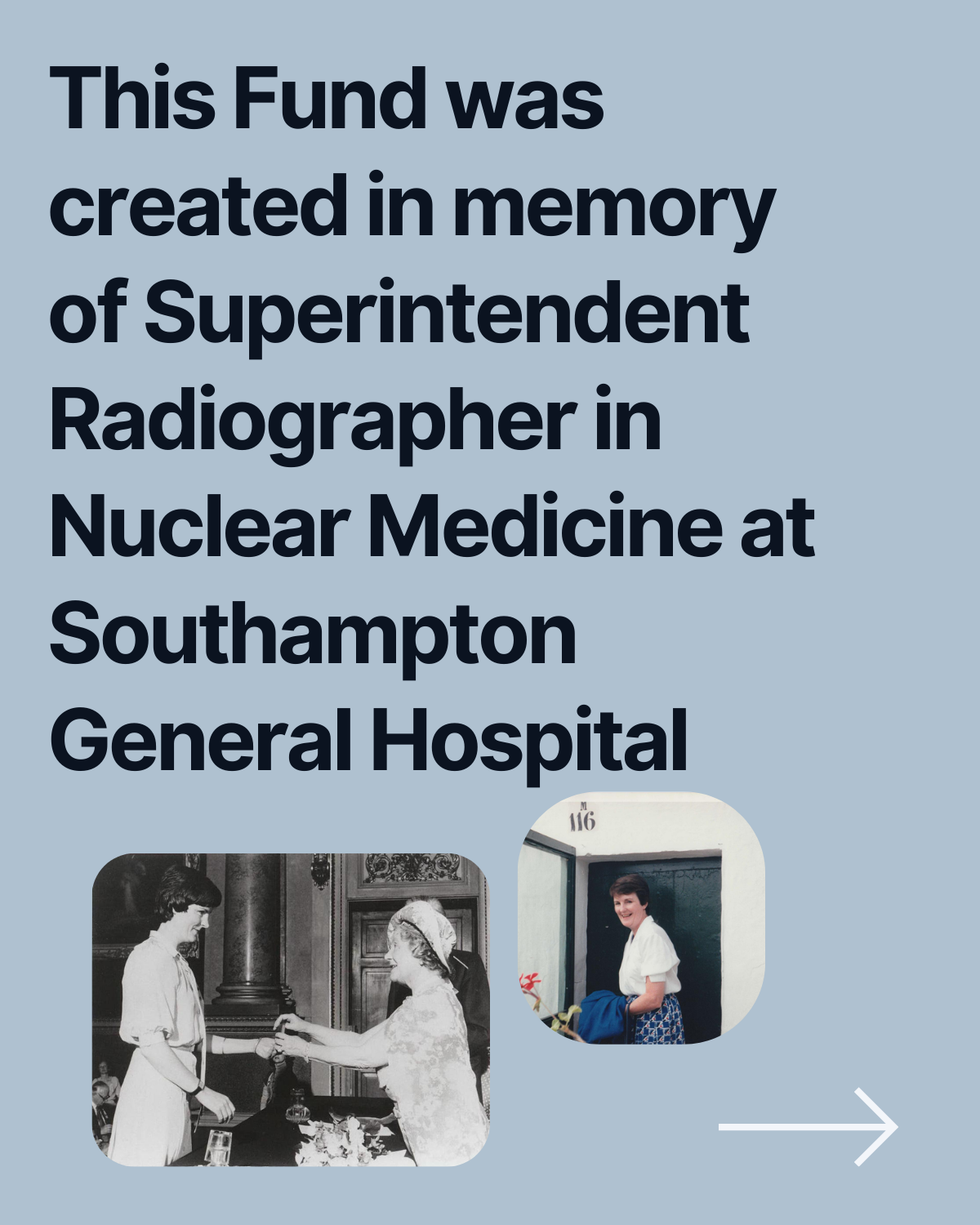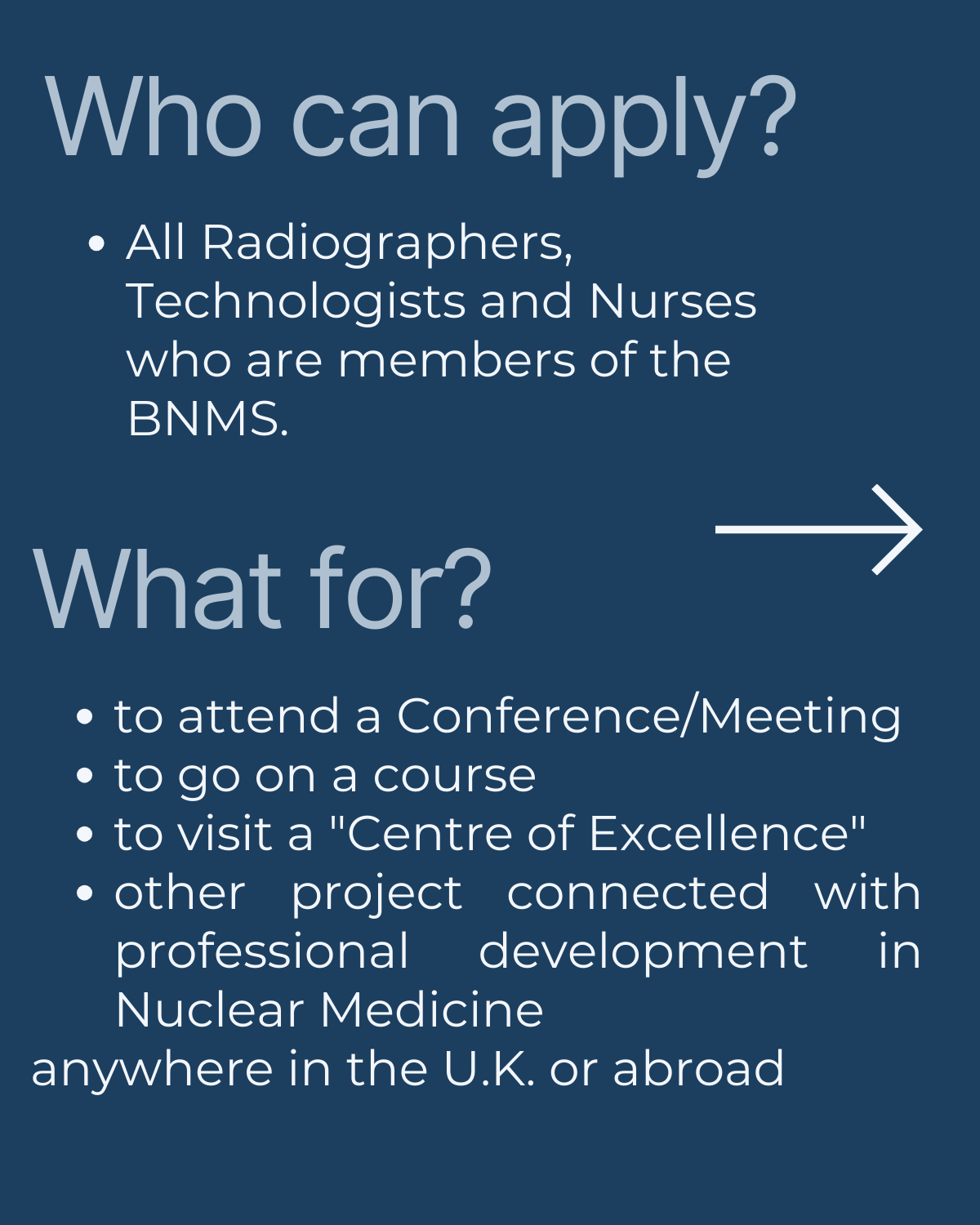- About BNMS
- HIstory of BNMS
- BNMS People
- BNMS Policies
- BNMS Achievements
- Governance
- Awards & Prizes
- Donate/Support Us
- About Nuclear Medicine
- FAQs
- Membership
- Events
- News
- Resources
- Radionuclide Supply
- UKRG
- MRT Consortium
| Radiographers, Technologists & Nurses Committee |
|
Radiographers, Technologists & Nurses Committee
Select the links below to view biographies
AboutThe BNMS Radiographers, Technologists & Nurses committee meets several times a year to work on the objectives below. Objectives
The BNMS Radiographers, Technologists and Nurses' Committee:-
All Radiographers, Technologists and Nurses who are associate or full members of BNMS can be members of the BNMS RTN Committee. Interested in Joining?We are continually looking for people willing to contribute and become actively involved in the RTN Committee. Do you feel you could:- If you’re interested in volunteering, please email your expression of interest or any queries to rtng@bnms.org.uk and complete a brief bio, available below RTN members’ benefits: Want to know more about Ros Breen Fund?


View the Terms of Reference for the Ros Breen fund here https://www.bnms.org.uk/page/TheRosBreenFundBNMS RTN CommitteeThe BNMS Radiographers, Technologists and Nurses (RTN) committee has created a forum for knowledge exchange, shared learning and collaboration between all RTN professionals in the Nuclear Medicine and PET specialities. The aim is to share good practice, help the community develop and be a resource to all that develop practice with focus on patient wellbeing and scientific excellence. The distribution list is open to anyone who wants to participate, with content and discussions being restricted only to the list subscribers; the aim is to create a community that can support with expertise and constructive discussion of all subjects of interest to the Nuclear Medicine and PET RTN community. RTN community has its own distribution list: jiscmail.ac.uk/BNMS-RTN What does a Nuclear Medicine Technologist/Radiographer and Nurse do?Clinical staff within nuclear medicine work as part of a multi disciplinary team with many taking on advanced practice. This can include:
The role is varied and all sites have very specific demands and unique workloads. Why Choose Nuclear Medicine as a Career?Nuclear medicine technologists are able to bring together knowledge and skills from the academic fields of physics and Biology. These are combined with the practical skills required to work with both precision equipment and people who are often frightened and anxious. Patients have their own individual worries and physical problems. Dealing with these in a professional but caring way that will maximise the value of the procedure and minimise the effect on the patient is probably the most important and most difficult skill a technologist must master. This makes for a very interesting and varied workload, which brings new challenges every day. It is a career that provides an important and worthwhile service and yet still demands a high level of skill and technology. It also means being part of a multidisciplinary team sharing knowledge with others. What does a Nuclear Medicine Technologist/ Radiographer do?Summarily, Clinical Technologists perform the following duties autonomously:
What does a Nuclear Medicine Nurse do?Introduction Registered nurses working in Nuclear Medicine have at least 2 years post registration experience and many are highly skilled practitioners in the field. Education Nuclear Medicine Nurses educate patients and their carers in order that they can make informed choices about their investigations and treatment. They educate nursing and medical staff (both on the wards and those visiting nuclear medicine) about basic nuclear medicine principles and procedures and support training with supervised practice. They inform other nuclear medicine staff about nursing care such as assessment of patient’s condition, pain control and comfort. They train staff to recognise emergency situations such as hypoglycaemia, anaphylaxis and problems associated with the critically ill. Clinical Effectiveness Nurses working in Nuclear Medicine are often involved in or instigate audit and research in order to assess quality of care provided and where possible improve the way in which procedures are performed. Also, Nuclear Medicine nurses can be involved in Phase 1 and Phase2 clinical trials. Co-ordinate Nurses may co-ordinate some sessions or clinics to ensure smooth running and continuity of care. Liaison The multidisciplinary team, comprising doctors, physicists, pharmacists, radiographers, technologists, nurses and administrative staff, contribute to the work in nuclear medicine. For the department to run smoothly, the various staff groups need to understand each other's role and communicate effectively. The nurse can have a vital role in ensuring effective liaison between staff. Since many in-patients attend Nuclear Medicine, the nurse can be a key point of contact for communication between the wards/units and the department, not only in ensuring the best possible continuity of care for the patients, but also in updating and developing the knowledge of ward nurses and doctors. Procedures The nurse has an important role in the procedures which are undertaken in Nuclear Medicine. Sometimes the nurses may co-ordinate and undertake procedures, whilst at other times their role is to assist other members of the multidisciplinary team. Stock Control Often the nurses have a responsibility for the routine checking of essential equipment such as resuscitation equipment. In addition they may take responsibility for the ordering and purchasing of consumables and medication. Some procedures require patients to consume a fatty diet during their investigation and this may be ordered by the nurse. What sort of Skills are required? As Nuclear Medicine departments provide a wide variety of investigations to patients from such a large background, the nurse needs to be aware that the role can be diverse and change quite quickly. Adaptability is thus a key requirement. In addition, a good general knowledge of Nuclear Medicine will be required. The following specific skills are required;
What sort of training and qualifications are required? Much of the training for Nuclear Medicine nursing is performed locally, though it is essential that skills and knowledge are updated regularly. For example, attending study days such as:
The role of the nurse varies somewhat between departments, so qualifications will depend upon what each specific department expects and desires. The Register of Clinical TechnologistsThe Register of Clinical Technologists (RCT) was previously known as the Voluntary Register of Clinical Technologists (VRCT) and has now been accredited by the Professional Standards Authority. For a link to the Organisation profile click here The RCT is a register for healthcare scientists specialising in the practical application of physics, engineering and technology to clinical practice. Professional DevelopmentCourses for Radiographers and Technologists are listed in the Training and Education/ Courses Section of the website. Page Updated 26.11.2025 |
11 hours agoBNMS Student Prize winners 2026
23/02/2026An apology from us
26/02/2026
Cardiac MPS Course 2026
05/03/2026 » 06/03/2026
Annual London PET-CT Update 2026
 An interview with Gerard McKiernan for BNMS2024 https://youtu.be/sP4eRjS1Hb4?si=ZF1RPE5ge2qbu5do
An interview with Gerard McKiernan for BNMS2024 https://youtu.be/sP4eRjS1Hb4?si=ZF1RPE5ge2qbu5do